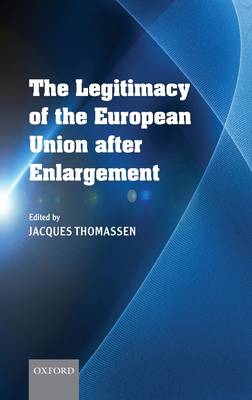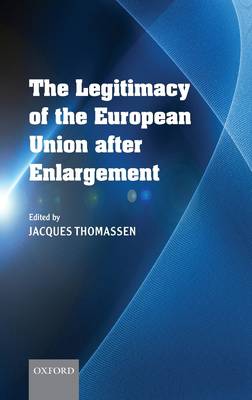
- Retrait gratuit dans votre magasin Club
- 7.000.000 titres dans notre catalogue
- Payer en toute sécurité
- Toujours un magasin près de chez vous
- Retrait gratuit dans votre magasin Club
- 7.000.000 titres dans notre catalogue
- Payer en toute sécurité
- Toujours un magasin près de chez vous
80,45 €
+ 160 points
Description
In 2004 the European Union was enlarged with ten new member states, eight of them previously communist states in Central and Eastern Europe. This enlargement was without precedent in the history of the Union and its predecessors. It is still to be seen how well the institutions as well as the citizens of the Union are able to cope with the consequences of this operation. The authors of this volume evaluate the effect of that enlargement on its legitimacy. They do so by assessing the effects of enlargement on the functioning of the process of political representation in the European Union and on the feelings of the European people towards the Union. This study is mainly based on data from the European Election Study 2004. This study made it for the first time possible to compare the attitudes and behavior of citizens in the enlargement countries, in particular in Central and Eastern Europe, with their counterparts in the older member states. Some of the findings of this study are counterintuitive. In many respects the effects of enlargements are much smaller than often argued. The party systems of the new member states and the attitudes and behavior of the voters of individual parties are very compatible with their counterparts in the older member states, making further European integration relatively easy. The same can be said about members of the European Parliament. On the other hand the mutual trust of the people in the older and new member states is extremely low and undermines the legitimacy of the enlarged Union.
Spécifications
Parties prenantes
- Auteur(s) :
- Editeur:
Contenu
- Nombre de pages :
- 288
- Langue:
- Anglais
Caractéristiques
- EAN:
- 9780199548996
- Date de parution :
- 03-08-09
- Format:
- Livre relié
- Format numérique:
- Genaaid
- Dimensions :
- 152 mm x 234 mm
- Poids :
- 657 g







